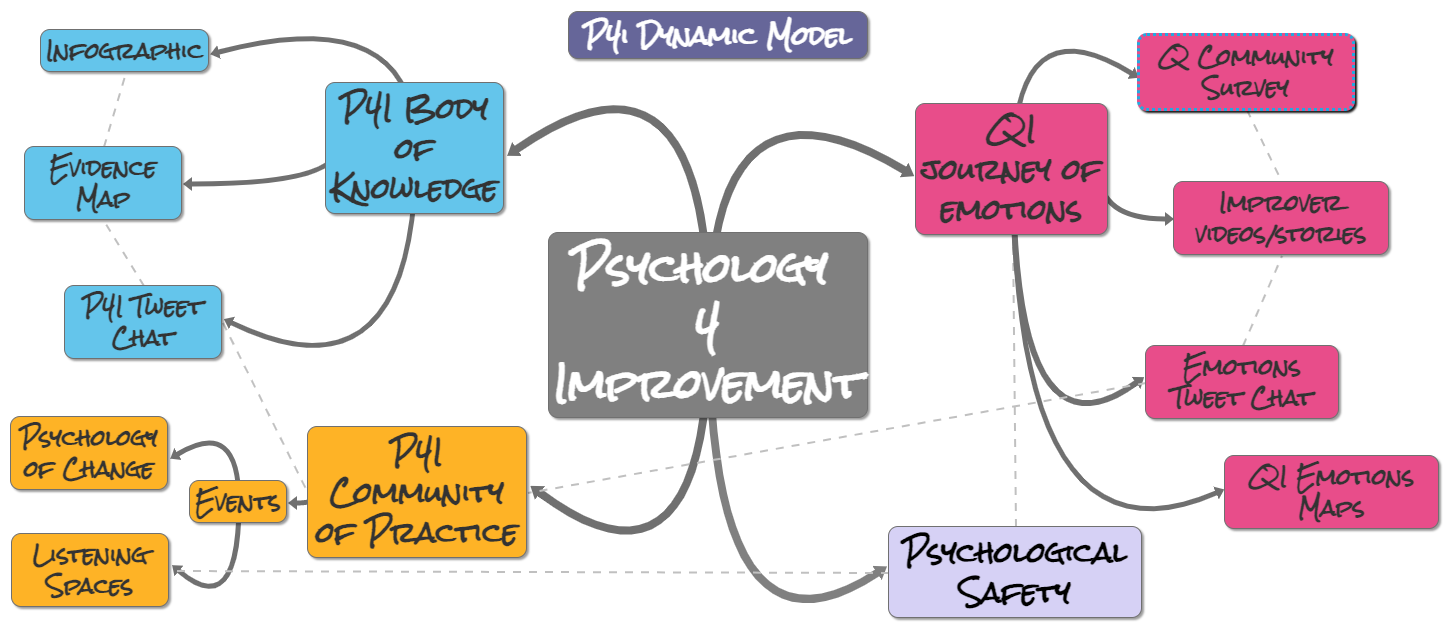What if you wanted to find out how to build an organisational-wide improvement approach that was grounded in evidence-based psychology? What resources and tools are out there for you to use? This was the question we decided to investigate in 2019.
It is well known that improvement in health and care is 20% technical and 80% human (as noted by Godfrey in Coaching interprofessional health care improvement teams). Yet in practice, quality improvement often does not reflect that balance.
When we started this project in 2019, there was no space devoted to considering improvement from a psychological or relational perspective. Given these factors, we saw an exciting opportunity to establish a co-produced, evidence-based mindset and skillset that foregrounded psychological factors in improvement.
From the start, Psychology for Improvement (P4I) grounded itself in ‘co-production’, drawing on the ideas and resources across our community, with expertise shared by both improvers and psychological practitioners. To help our work flourish, we established three specific goals:
- To understand the emotional journey of an improver and support their wellbeing.
- To disseminate a masterclass from Kate Hilton on the Psychology of Change which included sessions on intrinsic motivation, co-design, and working with power.
- To create resources relating to psychological safety and its key relevance to improvement.
We developed the P4I Dynamic Model (below) to help visualise these goals.

Those involved have brought not only their technical skills but their creative and imaginative energy to the workshops and discussions, the last of which was held in March 2021.
The steering group rapidly evolved a way of working that privileged connection and relationship, prioritising working experientially over processes that can sometimes stifle creativity and innovation. We were aiming to model the way of working that we wanted Psychology 4 Improvement to promote.
Through the global lockdown and beyond, P4I has been on a transformational journey. We have been delighted by the huge response from the improvement community to this work.
Improvers are hungry to share tools and resources, to connect with each other around the relational and organisational challenges they face in their work and to do further research in this vital area of quality improvement. We are actively looking at ways that Q can continue to support this work, and we would love to hear from you.
If you’re interested in working in this area, or would like to stay up to date with our work and resources, please join Q’s Psychology for Improvement Special Interest Group.